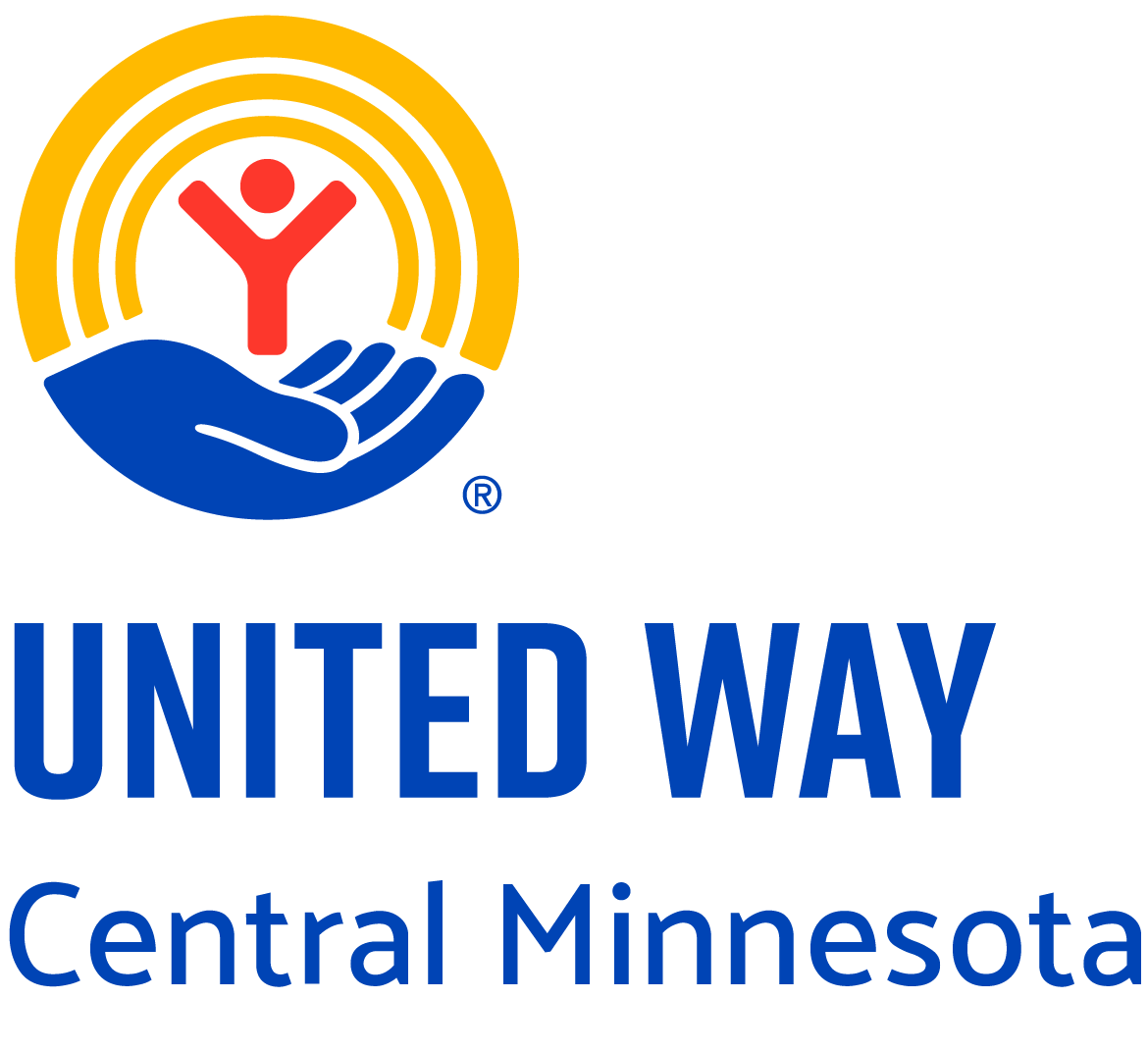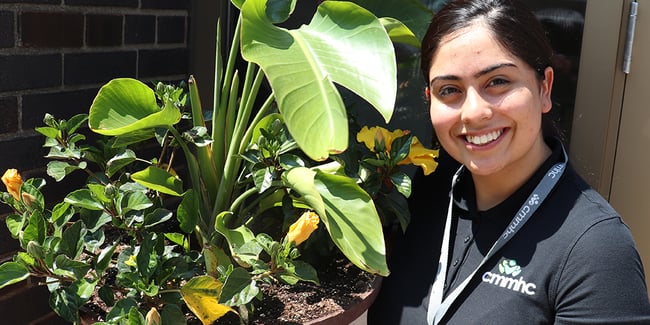An Interview with Mental Health Navigator Merary Rangel
When you or a loved one needs mental health support, some of the most challenging steps to take may be the first ones. There may be more questions than answers: What is going on? Who should I call? Where do I make an appointment? Which provider is right for me? Can I afford care and treatment? How long do I need to wait until I get an appointment?
Finding the right help at the right time may feel overwhelming. Central Minnesota healthcare practitioners and mental health advocates recognize these challenges. That’s also where the efforts of United Way of Central Minnesota’s Health Committee come in.
The health committee brings local experts and community members together to identify the issues surrounding the health and wellness of Central Minnesotans. Local providers, a suicide prevention expert, a suicide loss survivor, representatives from county government and a local school district comprise the committee. The group meets regularly to collaborate and find ways to collectively address our community’s most urgent health needs.
The committee understands that navigating a complex system of providers, insurers and treatments to access help efficiently is often challenging. The group works together to identify which solutions may best address community needs. One of those solutions includes supporting the position of mental health navigator in the St. Cloud area. A mental health navigator helps callers sort through the many mental health and social service options available, determines what services and treatment options are a good fit and develops connections between callers and quality resources. This work simplifies connecting to care and may even shorten the time between the initial call and getting help.
Health committee member Melinda Gau discusses the group’s efforts to secure a mental health navigator. “The health committee has worked towards right-time, right-place access to mental health care for our kids, caregivers and programs to address community needs. We identified a need for a community mental health navigator and secured grant funding for this role. United Way partnered with Central Minnesota Mental Health Center (CMMHC) to make this happen. As a health committee member, I am dedicated to continuing to improve the health and lives of Central Minnesotans.”
Interview with Merary Rangel, MHP, BA
We recently sat down with the new mental health navigator at CMMHC, and discussed how her work paves the way for better mental health awareness and access in our community.
Describe what you do as a mental health navigator
I get people the help and resources they need. Sometimes people need those right away, like when they need therapy. Maybe they do a Google search and call the first phone number they see on their screen. There could be a three-month wait at that provider, and maybe they’re in
a crisis. My job is to help them get the needed resources and get them into therapy faster. I’ll research to help them within a shorter time span.
Describe your background and how you came to your position
My background in mental health started when I was a certified nursing assistant working on
a dementia unit. At first, my career was going towards nursing, but once I started helping those with dementia, I found a lot of satisfaction in offering support with mental health challenges.
I changed careers and received a bachelor’s degree in psychology. I worked at a hospital crisis center and as an adult rehabilitative mental health services provider, helping people with
a mental illness diagnostic assessment get skills. When I saw this position open up, I felt my background perfectly fit the job.
How long have you been in your role at CMMH?
I have been at CMMHC for six months now. It’s a short time, but I enjoy working here daily.
Describe a typical call you may receive regarding mental health services
A typical call I get is for someone who needs therapy right away. Sometimes, when a person is in crisis, they’ll call 9-8-8, and that service transfers them to CMMHC in St. Cloud for Stearns, Sherburn, Benton or Wright counties. I gather basic information—does the person have insurance? Where do they live? Are they interested in telehealth or in-person therapy? Is culturally-responsive care essential for them? How soon might they be able to access services? The biggest thing I look for when gathering information on a call is if the person calling has insurance. Asking about that is an important part.
Callers may be in crisis, sometimes distressed and nervous, when they reach out. They may feel overwhelmed and need help right away. I sometimes tell them to breathe, reassuring them that it’s okay and that we will find help. I let them know what options are available based on the information they give me. I suggest that options X, Y, or Z are best. At the end of the conversation, callers might say, “Oh, thank you so much! I needed you. I’m going to keep your phone number. Can you call me again in a week?” I always do a one-week follow-up to see if the callers got the needed services. Often, they say, “You have no idea how much you’ve helped me!” And to me, that’s what makes me happy. I played a role in getting them the services they needed.
Why do you think a role like yours is vital within communities?
A mental health navigator’s role is essential because I support people. I also speak Spanish so I can advocate for Hispanic mental health. I help people get the services they need faster. Sometimes people don’t know how to navigate the system, and I’m there to walk them through that process and advocate for them.
What is the number one thing you want people to know about mental health?
I know that in some families, the concept of mental health is that what you feel is not accurate. Family members may say, “It’s all in your head,” or “You’re just looking for attention.” I, myself, have a diagnosis of depression, and it’s hard sometimes. I want people to know mental health issues are real. I want people to be more accepting and stop stigmatizing mental health concerns and labeling people as “crazy” or “lazy” because accepting these issues may already be challenging. I hope people understand that.
How can people take action for themselves and their loved ones as they face mental health challenges?
I think for families and those facing mental health challenges, you can advocate for yourself by speaking to someone you trust. Sometimes that feels uncomfortable. Sometimes that feels embarrassing. But speaking up is one way to advocate for yourself. For those who have family members experiencing mental health challenges, I would say talking to them about this helps.
Explain how you feel about United Way’s partnership with CMMH. How is this beneficial for the community?
The partnership between CMMHC and United Way helps us all by giving the community needed resources. This partnership bridges the gap between community members and available services. A mental health navigator helps fix those little holes to make things easier for people.
What steps can the community take to solve the mental health issues we currently face?
One way the community can do this is to talk about mental health. Sometimes people are ashamed, or families say, “Don’t talk about that.” In reality, we should talk about these things to support those facing these challenges. We need to make that okay. We need to help people feel it is okay to say, “I’m not okay,” so we can support one another.
Addressing Our Community's Most Urgent Health Challenges
Supporting Merary Rangel's work as a mental health navigator is just one way United Way of Central Minnesota’s Health Committee is finding solutions that address our community’s most urgent health challenges. The health committee continues to work to ensure better health for all of us and United Way of Central Minnesota appreciates the efforts of health committee members who bring their experiences, knowledge and passion for our community to the discussion.
If you or a loved one would like to connect with Merary Rangel at CMMHC, please call 320-202-2077.
If you would like to know more about UWCM’s Health Committee or how United Way works to impact our community, send us questions. We welcome your feedback!

.jpg)



